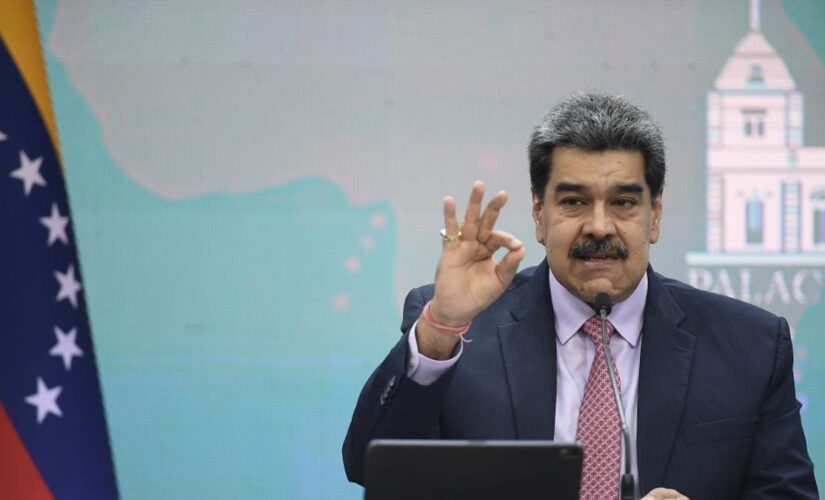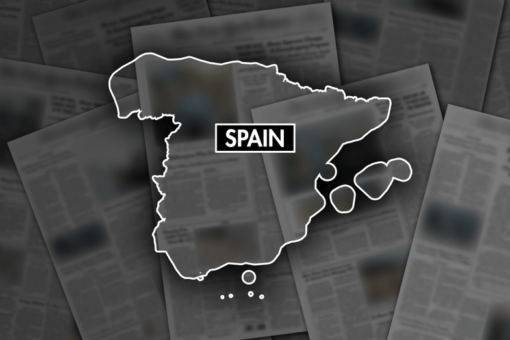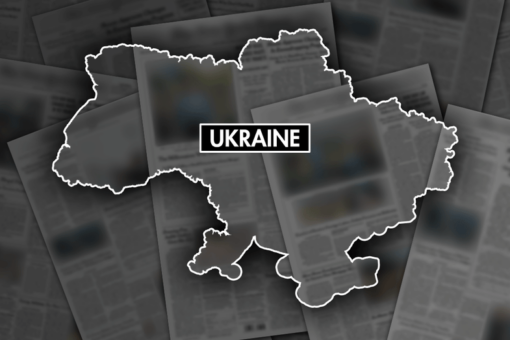As the U.S Treasury department issued a license to Chevron to drill for oil in Venezuela, relaxing 2019 sanctions applied to Venezuela under the Trump administration, Venezuelan dissidents are crying foul, reminding the world that the Maduro regime continues to engage in what are internationally recognized crimes against humanity.
Officially, the landmark U.S. policy change was a response to the Maduro regime’s dialogue with the opposition regarding spending on a humanitarian budget. Yet the change in policy has left many Venezuelan activists and dissidents disillusioned given the ongoing human rights situation in the country.
Venezuela remains the most egregious abuser of human rights in the Americas, and according to a U.N. report in 2019 is complicit in 7,000 cases of extrajudicial killings since mass protests began against the Maduro government.
US TREASURY AUTHORIZES CHEVRON TO EXPAND OIL PUMPING IN VENEZUELA
Maduro critics say that political opponents are frequently targets of harassment, intimidation, imprisonment and even torture and murder.
Retired Col. Igor Marin served in the Venezuelan army from 1965 to 1999. In comments to Fox News Digital, he discussed the case of his son, political prisoner Igbert Marin, who is currently on hunger strike at a Venezuelan military intelligence facility.
“My son, Lt. Col. Igbert Marin, received a seven and a half-year sentence for ‘incitement to rebellion’ based on the false testimony of one witness. During his imprisonment, he has been subject to cruel and degrading treatment, as well as torture. Currently, he is on his 10th day of a hunger strike.”
Observers claim the entire Venezuelan state budget is used for one purpose: to maintain the regime’s grip on power and force the population into compliance. Food, health care and heavily discounted gasoline are routinely lavished on Maduro supporters and denied to regime opponents.
Alfredo Romero, director of Foro Penal, the nation’s largest organization representing political prisoners, has been on the front lines of defending human rights against the abuses of the Maduro administration.
SENS. CRUZ, RUBIO ACCUSE BIDEN OF ERODING LEGITIMACY OF VENEZUELAN OPPOSITION LEADER JUAN GUAIDÓ
“Officially, Venezuela has 277 political prisoners, but since 2014 we have documented 16,000 cases of political prisoners. … People are detained, tortured and killed for political reasons, with systematic use of torture against political prisoners. … Violation of human rights in Venezuela is systematic; and there is no investigation at all,” Romero said.
The torture employed against Venezuelans according to rights groups includes waterboarding, electric shock and sexual assault.
The Maduro regime is widely regarded as an international pariah that has lost all vestiges of democratic legitimacy, with neither the United States nor the European Union currently recognizing Maduro as the head of state. Nonetheless, the Venezuelan opposition and the Maduro regime recently resumed talks in Mexico City aimed at discussing a framework for the 2024 Venezuelan presidential election and approving a humanitarian budget for much-needed social spending on the Venezuelan people — a budget that includes education, health and food, among other things.
The situation also remains perilous for the free press in Venezuela. Journalist Angel de Leon noted, “Censorship has always existed. It is the easiest way for the regime to take away from the Venezuelan the right to free thought.”
De Leon continued, “Fewer and fewer media outlets exist due to the persecutions of regulatory bodies such as Conatel. So far this year, there are more than 70 closed radio stations in the country. The critical press ceased to exist. The few media outlets that exist are either in the hands of the Maduro regime or are self-censoring for fear of being shut down permanently.”
Romero added that “Institutions are made for political persecution. The judicial system is a weapon for political persecution.”
Observers say apart from the political oppression, Venezuelan daily life continues to be hellish for its citizens. De Leon warned”There is no investment in education … people continue to die from malnutrition, the hospital system does not have any type of investment, maintenance, and much less funding. No infrastructure of any kind has been created in recent years. Problems with basic services continue. Fuel is a sacrifice for Venezuelans because of the cost. The insecurity has not stopped.”
At the time of the announcement of the deal, the Treasury Department said, “The announcements by the Unitary Platform and the Maduro regime are important steps in the right direction to restore democracy in the country.” It went onto say that “The United States welcomes and supports the reopening of negotiations between the Unitary Platform and the Maduro regime, as part of our longstanding policy to support the peaceful restoration of democracy, free and fair elections, and respect for the rights and freedoms of Venezuelans.”
A spokesman for Chevron told Fox News Digital, “We reiterate our commitment to conducting our business in compliance with the framework provided. OFAC’s decision brings added transparency to the Venezuelan oil sector.” The spokesman added, “We are determined to remain a constructive presence in the country and to continue supporting social investment programs aimed at providing humanitarian relief.”
Fox News’ Chris Pandolfo contributed to this report.




